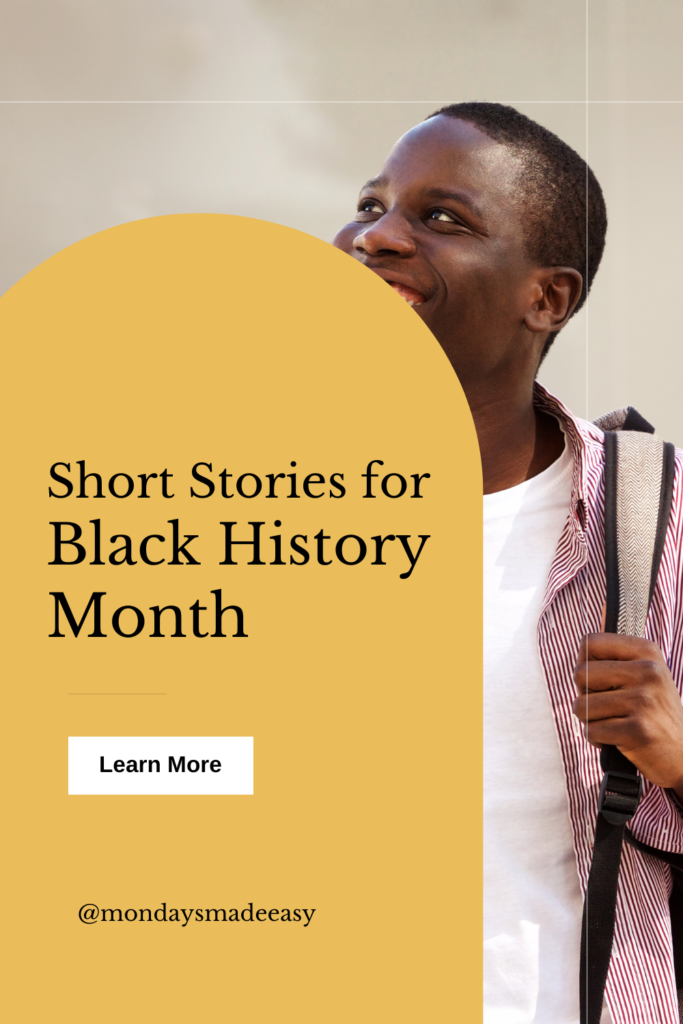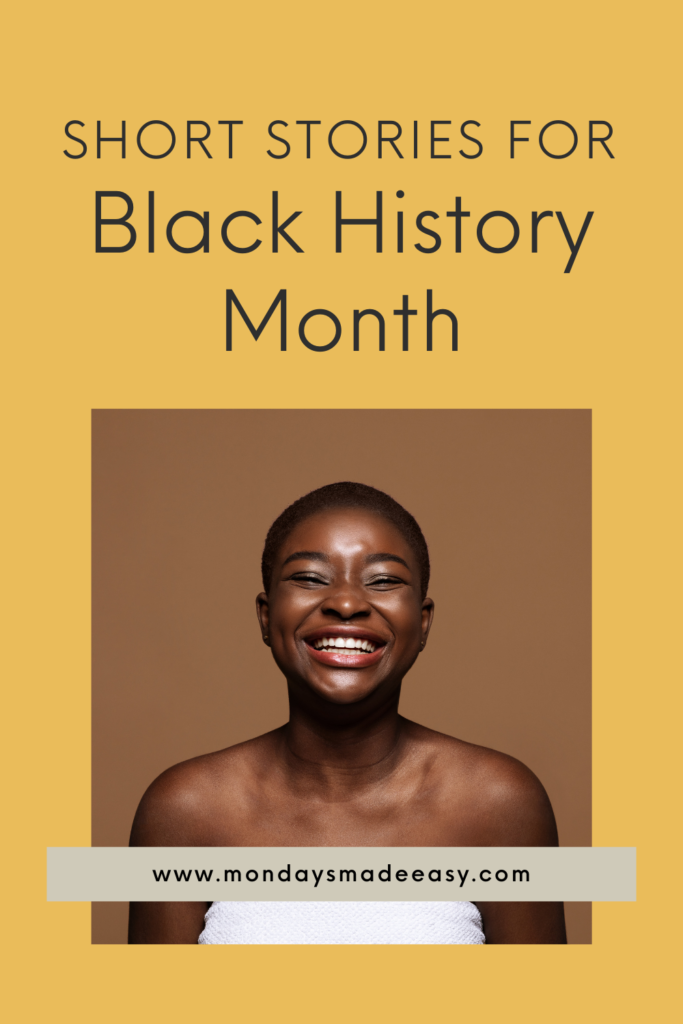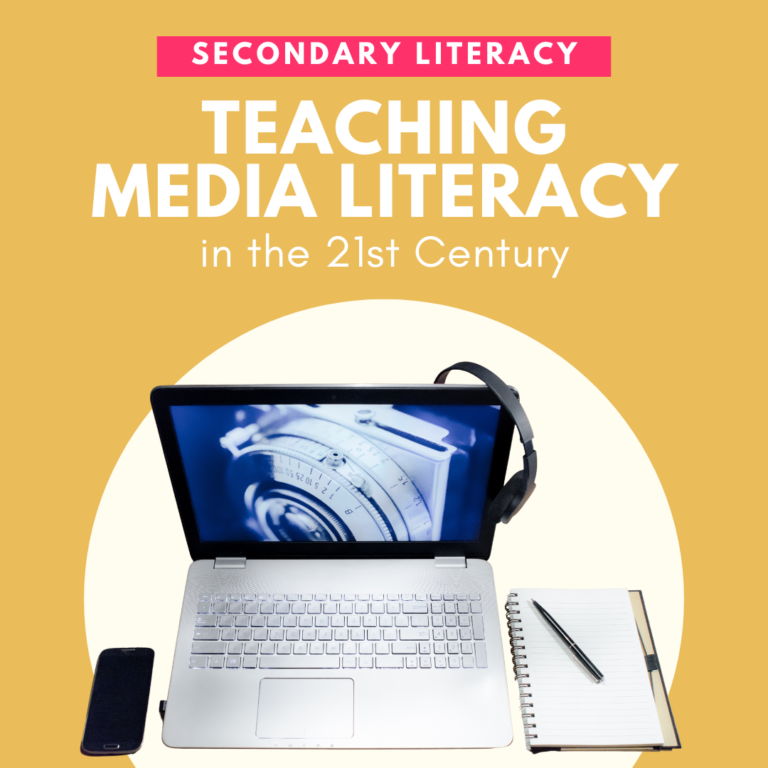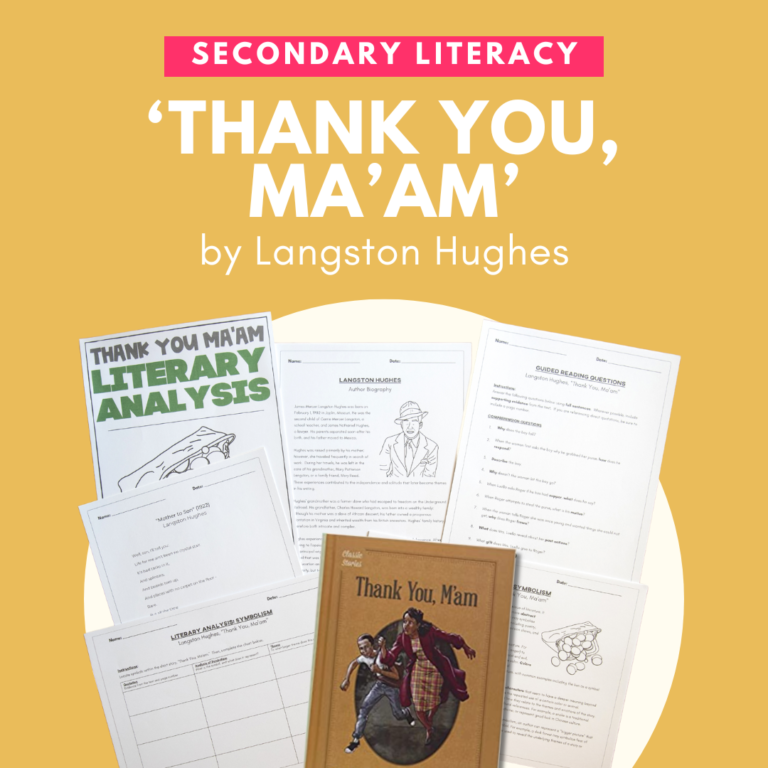Every February, celebrating Black History Month provides educators with the opportunity to amplify the experiences, achievements, and contributions of the Black community. Stories are powerful tools for understanding the multifaceted dimensions of history. This blog post brings to light an array of short stories by black authors – each one offering a unique lens on the African American experience.
This blog post is a collection of my own teaching practices as well as recommendations from our community on Instagram. I’d like to extend my thanks to the educators that shared their knowledge and experiences for this post – I am so appreciative to learn from you all!

What is the story of Black History Month?
Black History Month began in 1926. It was a week-long celebration initiated by Carter G. Woodson, an African American historian and author. Woodson’s goal was to highlight the significant ways in which African Americans have contributed to the collective culture. This event has evolved into a month-long celebration that was officially recognized by the government of the United States in 1976. It is also observed in Canada, Ireland, and the United Kingdom.
Why is it important to celebrate Black History Month in your classroom?
Black History Month is a reminder of the struggles, triumphs, and resiliency of Black individuals and communities. Numerous academic studies indicate a prevalent focus on white history in collective narratives, as evidenced by the predominance of white skin in medical diagrams and standard imagery in Western societies (Salter, Adams, et. al.). Black History Month provides educators with the opportunity to emphasize the unique narratives of Black people in the past and present.

How do I honour Black History Month?
Celebrating Black History Month involves acknowledging the diverse and complex history of the Black community. While pain and suffering are undeniable aspects of Black history, triumph and prosperity are also crucial components to your curriculum.
Honouring Black History Month is one of the many ways that educators can foster an anti-racist classroom. For more guidance about avoiding harmful teaching practices and adapting a trauma-informed approach, check out Teaching Tolerance’s free resources for educators. Mondays Made Easy also offers a free self-assessment to prepare students for discussions involving racial inequity.

What are some topics for Black History Month?
Teachers often like to structure their lessons around a key theme. I’m enthusiastic about the idea of immersing ourselves in one or two major themes throughout Black History Month. Your study plans can centre around various focused topics or themes, such as:
- Black Women Pioneers
- Black Innovations in Science
- The Evolution of Jazz and Blues
- Sports Integration
- Black Literary Voices
- African Diaspora
As you might notice, these themes have the capacity to reflect the breadth and depth of the Black experience. Also, these themes provide opportunities to uncover fresh narratives that have had a profound impact on our collective history and culture.
Short Stories to Celebrate Black History Month:
Check out these six short stories written by Black authors. These narratives capture a range of experiences, reflecting the varied lives and perspectives within the Black community. With a wide range of themes to unpack, your students will love exploring each distinct story!
1. “Everyday Use” by Alice Walker
This short story examines the preservation of heritage and culture across three generations of African-American women living in the rural Southern United States. Published in 1973, “Everyday Use” captures the complex family dynamics of a mother and her two daughters. This story explores themes of tradition, empowerment, and cultural legacy.
2. “Thank You, Ma’am” by Langston Hughes
Next up is “Thank You, Ma’am,” which captures an unexpected act of kindness between two strangers. Langston Hughes is a vibrant writer known for his contributions to the Harlem Renaissance; he published this short story in 1958. It explores themes of dignity, trust, and compassion, and pairs well with Hughes’ distinct jazz poetry. It is also a fantastic story to explore symbolism.
3. “Down the Lakeshore” by Téa Mutonji
This next title is found in a modern collection of short stories called Shut Up You’re Pretty that portray the experiences of a Congolese-Canadian teenager. Téa Mutonji originally hails from the Democratic Republic of the Congo but moved to Scarborough, Ontario when she was young. “Down the Lakeshore” captures her keen insights about dual citizenship and the ways in which we are shaped by our environment.
4. “Home” by Gwendolyn Brooks
Faced with challenging circumstances, a family determines what “home” really means. Gwendolyn Brooks’ heartwarming short story was published in 1953 and is actually the second chapter of her novel Maud Martha. In exploring the question of what makes a home, this story would pair well with the topic of African Diaspora.
5. “The Gold Cadillac” by Mildred D. Taylor
“The Gold Cadillac” is a short story that explores the complexities of wealth and status within the African American community. Set in the 1950s, Mildred D. Taylor tells the story of an African American family that takes a trip through the South in a brand new Cadillac. This short story celebrates the strength and resilience of the African American family unit in the face of historical injustice and racial discrimination.
6. “The Rights to the Streets of Memphis” by Richard Wright
This short story originates from Richard Wright’s autobiography, Black Boy. Published in 1945, Black Boy is a memoir of Wright’s childhood in the South during the early 1900s. His story is one of self-discovery and empowerment and explores themes like the loss of innocence and the struggle for personal dignity.

Celebrating Black History Month with Short Stories
I hope that this exploration of short stories for Black History Month offers your students a rich, educational journey into the heart of African American culture and history. Celebrating Black History Month through these stories allows us to connect with diverse perspectives and experiences, deepening our understanding of the African American narrative.
The works of these black authors serve not only as a reflection of past struggles and triumphs, but also as a beacon for future generations. These narratives underscore the importance of recognition, dialogue, and continued learning during Black History Month and beyond.




